The Return of the Sorcerer: Falling under Clark Ashton Smith’s potent spell for the first time
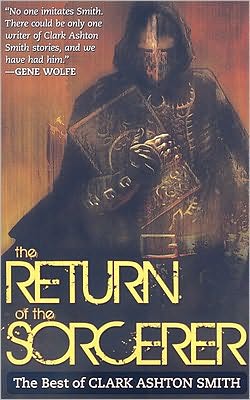 Confession: I am a fan of pulp fantasy who has, until recently, read very little Clark Ashton Smith. Yes, the man who comprises one of the equilateral sides of the immortal Weird Tales triangle has largely eluded me, save for a few scattered tales and poems I’ve encountered in sundry anthologies and websites.
Confession: I am a fan of pulp fantasy who has, until recently, read very little Clark Ashton Smith. Yes, the man who comprises one of the equilateral sides of the immortal Weird Tales triangle has largely eluded me, save for a few scattered tales and poems I’ve encountered in sundry anthologies and websites.
This past week that all I changed when I cracked the cover of The Return of the Sorcerer: The Best of Clark Ashton Smith (2009, Prime Books). As I read the introduction by legendary fantasy author Gene Wolfe I knew I was in for something special: Not only was Wolfe singing Clarke’s praises (“No one imitates Smith: There could be only one writer of Clark Ashton Smith stories, and we have had him”), but he ended with this declaration:
“Earlier I wrote that Smith had come—and gone. That he had been ours only briefly, and now was ours no longer. That is so for me and for many others. If you have yet to read him, it is not so for you. For you solely he is about to live again, whispering of the road between the atoms and the path into far stars.”
The stories that followed did just that. Smith came alive for me, and I find myself a changed man. I have trekked on distant planets, seen alien beings beyond my conception, and peered wide-eyed over the shoulders of reckless sorcerers reading from musty tomes of lore that should not be opened. I have witnessed wonders and horrors beyond the knowledge of mankind. It was a wonderful experience. Though they comprise only a small part of his body of work, the stories of The Return of the Sorcerer reveal Smith as a man of staggering imagination, considerable poetic skill, and surprising literary depth.
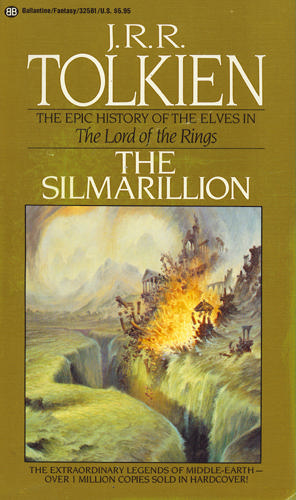 “Utter originality is, of course, out of the question.”
“Utter originality is, of course, out of the question.” “You’re gonna need a bigger boat.”
“You’re gonna need a bigger boat.”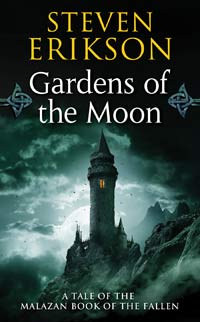 Over at Tor.com, bloggers Bill Capossere and Amanda Rutter have commenced an epic re-read of all ten volumes of The Malazan Book of the Fallen, starting with the first novel, Gardens of the Moon.
Over at Tor.com, bloggers Bill Capossere and Amanda Rutter have commenced an epic re-read of all ten volumes of The Malazan Book of the Fallen, starting with the first novel, Gardens of the Moon.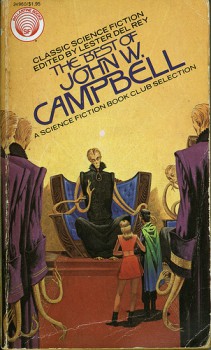 I’ve discovered that once you start writing about 1930s magazine science fiction — a field small enough for thorough analysis, but bursting with enough wonders to fill the galaxy — it becomes difficult to stop. Pondering the marvels of
I’ve discovered that once you start writing about 1930s magazine science fiction — a field small enough for thorough analysis, but bursting with enough wonders to fill the galaxy — it becomes difficult to stop. Pondering the marvels of 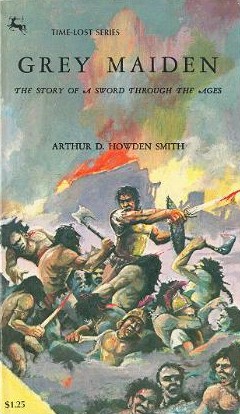 I have a habit of buying books — a compulsion, really. Older books, mostly, from book fairs and small used bookstores. Things that look unusual, and which, in the absence of an immediate reason on my part to read them immediately, often sit on my shelves for some time before I get around to them.
I have a habit of buying books — a compulsion, really. Older books, mostly, from book fairs and small used bookstores. Things that look unusual, and which, in the absence of an immediate reason on my part to read them immediately, often sit on my shelves for some time before I get around to them.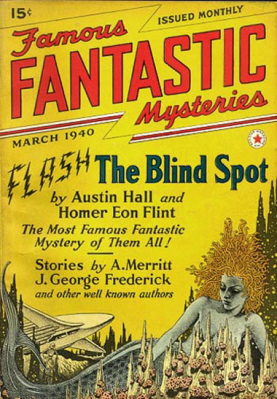 Last night at dinner we were discussing (as one does) Homer Eon Flint.
Last night at dinner we were discussing (as one does) Homer Eon Flint.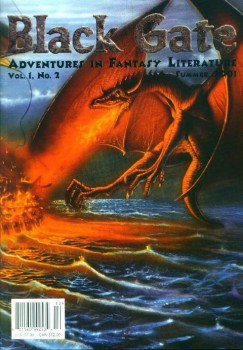 Matthew Maestri writes:
Matthew Maestri writes: There’s this thing I do when I know a given task will be difficult. I
There’s this thing I do when I know a given task will be difficult. I 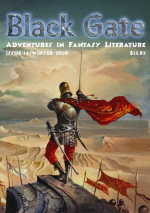 Luke Forney. who
Luke Forney. who